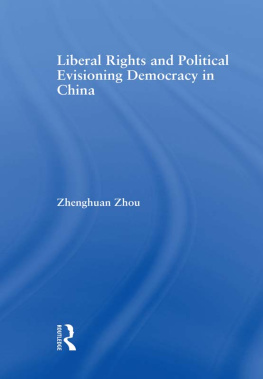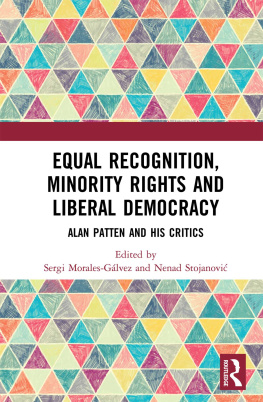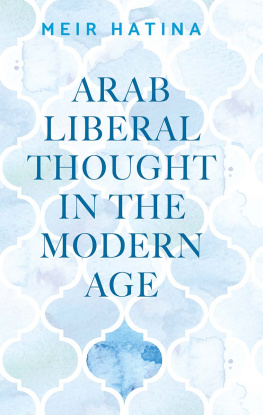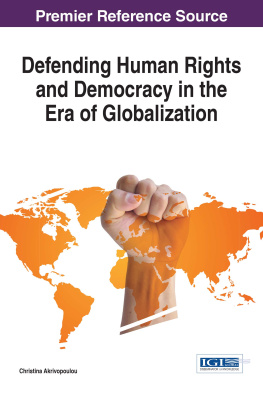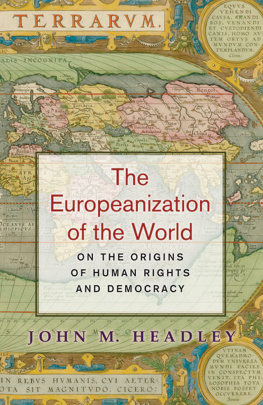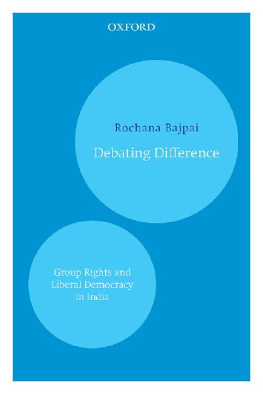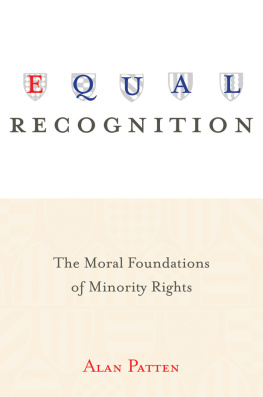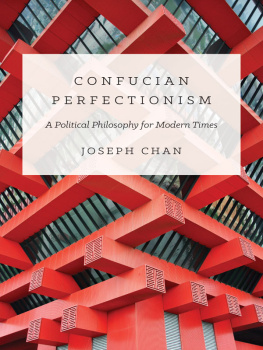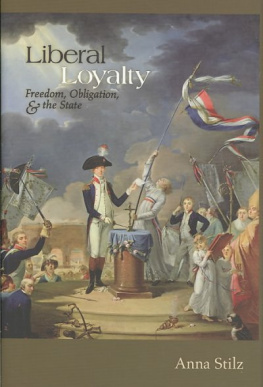EAST ASIA
HISTORY, POLITICS, SOCIOLOGY, CULTURE
Edited by
Edward Beauchamp
University of Hawaii
A ROUTLEDGE SERIES
EAST ASIA: HISTORY, POLITICS, SOCIOLOGY, CULTURE
EDWARD BEAUCHAMP, General Editor
ENGINEERING THE STATE
The Huai River and Reconstruction in Nationalist China, 19271937
David A. Pietz
JAPANESE DIRECT INVESTMENT IN CHINA
Locational Determinants and Characteristics
John F. Cassidy
SHOKO-KEN
A Late Medieval Daime Sukiya Style Japanese Tea-House
Robin Noel Walker
FROM TRANSITION TO POWER ALTERNATION
Democracy in South Korea, 19871997
Carl J. Saxer
HISTORY OF JAPANESE POLICIES IN EDUCATION AID TO DEVELOPING COUNTRIES, 1950S1990S
The Role of the Subgovernmental Processes
Takao Kamibeppu
A POLITICAL ECONOMY ANALYSIS OF CHINA'S CIVIL AVIATION INDUSTRY
Mark Dougan
THE BIBLE AND THE GUN
Christianity in South China, 18601900
Joseph Tse-Hei Lee
AN AMERICAN EDITOR IN EARLY REVOLUTIONARY CHINA
John William Powell and the China Weekly/Monthly Review
Neil L. O'Brien
BETWEEN SACRIFICE AND DESIRE: NATIONAL IDENTITY AND THE GOVERNING OF FEMININITY IN VIETNAM
Ashley Pettus
NEW CULTURE IN A NEWWORLD
The May Fourth Movement and the Chinese Diaspora in Singapore, 19191932
David L. Kenley
ALLIANCE IN ANXIETY
Dtente and the Sino-American-Japanese Triangle
Go Ito
STATE AND SOCIETY IN CHINA'S DEMOCRATIC TRANSITION
Confucianism, Leninism, and Economic Development
Xiaoqin Guo
IN SEARCH OF AN IDENTITY
The Politics of History as a School Subject in Hong Kong, 1960s2002
Edward Vickers
PITFALL OR PANACEA
THEIRONY OFUS POWER INOCCUPIEDJAPAN, 19451952
Yoneyuki Sugita
THE RENAISSANCE OF TAKEFU
How People and the Local Past Changed the Civic Life of a Regional Japanese Town
Guven Peter Witteveen
THE PROSPECTS FOR A REGIONAL HUMAN RIGHTS MECHANISM IN EAST ASIA
Hidetoshi Hashimoto
AMERICAN WOMEN MISSIONARIES AT KOBE COLLEGE, 18731909
Noriko Ishii
A PATH TOWARD GENDER EQUALITY
State Feminism in Japan
Yoshie Kobayashi
POSTSOCIALIST CINEMA IN POST-MAO CHINA
The Cultural Revolution after the Cultural Revolution
Chris Berry
LIBERAL RIGHTS AND POLITICAL CULTURE
Envisioning Democracy in China
Zhenghuan Zhou
LIBERAL RIGHTS AND POLITICAL CULTURE
ENVISIONING DEMOCRACY IN CHINA
Zhenghuan Zhou
Routledge
New York & London
Published in 2005 by
Routledge
270 Madison Avenue
New York, NY 10016
www.routledge-ny.com
Published in Great Britain by
Routledge
2 Park Square
Milton Park, Abingdon
Oxon OX14 4RN
www.routledge.co.uk
Copyright 2005 by Taylor & Francis Group, a Division of T&F Informa.
Routledge is an imprint of the Taylor & Francis Group.
Transferred to Digital Printing 2010
All rights reserved. No part of this book may be reprinted or reproduced or utilized in any form or by any electronic, mechanical, or other means, now known or hereafter invented, including photocopying and recording, or in any information storage or retrieval system, without permission in writing from the publishers.
Library of Congress Cataloging-in-Publication Data
Zhou, Zhenghuan
Liberal Rights and Political Culture: Envisioning Democracy in China
ISBN10: 0-415-97184-5 (hbk)
ISBN10: 0-415-88249-4 (pbk)
ISBN13: 978-0-415-97184-3 (hbk)
ISBN13: 978-0-415-88249-1 (pbk)
To Junling, Ian, and Noah
Contents
This book is based on my doctoral thesis, which was completed a little over four years ago. While portions of it, especially the last chapter, underwent major revision, I kept most of the chapters intact. This is largely because I am convinced now, as I was then, that the main arguments I have advanced in the study remain valid. My original intention was to rewrite the second chapter in a way that succinctly captures the key features of the political culture concept without delving too much into history. After rereading it, I decided to make only minor changes, as I realized that such a historical retrieval is rarely seen in existing literature and may be used for pedagogical purposes in undergraduate and graduate courses. Like perhaps most, if not all authors, I wish I had additional time to polish the final product that is to be presented to the reader till I am completely satisfied with it. This is of course unrealistic. We all have a series of deadlines to beat just as we are beating life's own deadline. Had I had a few extra months, I would have attempted a more substantive study of the idea of embedded rights, one that combines some of the enduring Confucian moral categories with the ideas and values underlying the liberal concept of rights. Seen from a different perspective, this sense of incompleteness is good because it gives us incentive to continue.
A word of explanation about notation is necessary since I have referenced a large number of sources in Chinese. First, unless indicated, all translations from Chinese into English are mine. I have given translated article and book titles only in endnotes for easy reference, but in the Bibliography I have listed article and book titles in Pinyin followed by translations in parentheses. Second, the names of authors are provided in the following way: Authors published in Chinese are quoted with their family names first and authors published in English are quoted with their family names last. There are those who write in English yet choose to have their family names listed first. I respect their choice and list their names the way they prefer. Third, the names of Chinese publishers are furnished only in Pinyin with no translation attached, but I have used their English names when and where they are available.
In researching for and writing the book, I have incurred tremendous debts to various individuals. I thank, first of all, my dissertation advisors: Dan Sabia, for his intellectual vigor and encouragement; William Kreml, for his insights and continued support; James Myers, for the research funding he provided for my field trip to China; Robert Angel, for his incisive comments on my dissertation; and Dean Kinzley, for his graciously serving on my dissertation committee.
I would like also to thank my editor at Routledge, Kimberly Guinta, for her patience and understanding.
A number of people provided generous support during my field trip in China. I greatly appreciate their help. I want to especially thank those who assisted me in the questionnaire survey process and those who made the interviews a much easier undertaking.
Finally, I thank my wife Junling whose integrity and unfailing love are an inexhaustible source of comfort and inspiration. Our children Ian and Noah have also cheered me on, not by what they do or say, but merely by being around. They have experienced just as much hardship and joy as I have through the entire process. To them this work is dedicated.
This study, broadly speaking, is about political theory, political culture and democratic development in China. Its main concern is about how the three topics relate to one another, and about how this relationship may further our understanding of political theory in terms of both form and substance. It addresses the questions of how Western political theory, or certain parts of it, may be applied to provide guidance for democratic development in a non-Western political and cultural context, and of how this application may in turn help extend the limits of our conception of political theory. More specifically, it focuses on how the liberal concept of rights might fare in the Chinese political and cultural setting, and how this concept, viewed from a comparative perspective, might be able to offer a guiding hand in defining the nature and direction of democratic change in China.

